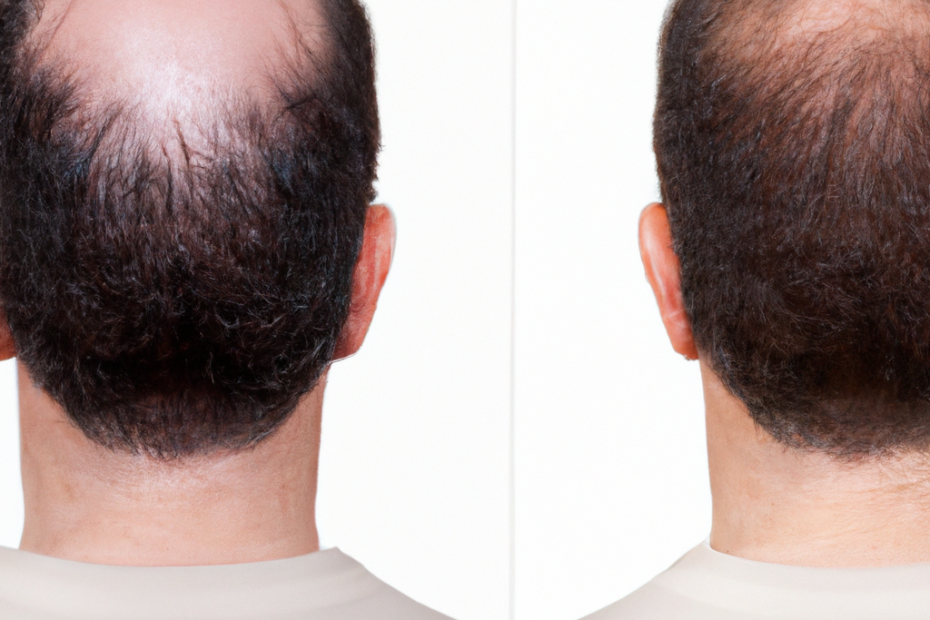Introduction:
Alopecia, an autoimmune disease that causes patchy hair loss, can significantly impact a person’s self-esteem and overall well-being. In addition to autoimmune conditions like Hashimoto’s and lupus, trace mineral deficiencies can play a crucial role in the development and progression of alopecia. While trace minerals are required in small amounts, their impact on the body should not be underestimated, especially in relation to hair health. In this article, we will explore three essential trace minerals necessary for preventing and treating alopecia, as well as their role in promoting healthy hair protein synthesis.
- Iodine: Iodine is a vital trace mineral that plays a key role in the production of thyroid hormones through enzymatic processes. A deficiency in iodine can impair thyroid hormone synthesis, leading to various health issues, including hair loss. Despite concerns about excess iodine causing autoimmune diseases, evidence suggests that deficiency is a more significant concern. Unfortunately, iodine deficiency is prevalent due to its scarcity in modern diets, particularly in regions with iodine-deficient soils. Consuming sea kelp, seafood, or sea salt can help address iodine deficiency, supporting the prevention of hair-related conditions caused by hormonal imbalances.
It’s important to note that fluoride, chlorine, and bromine found in various sources such as tap water, dental products, and processed foods can interfere with iodine absorption, exacerbating deficiencies. Moreover, certain medications contain fluoride compounds, further hindering iodine utilization. A daily iodine intake of approximately 200 micrograms is recommended, and one Brazil nut per day can provide sufficient amounts to meet this requirement.
- Zinc: Zinc, a trace mineral crucial for immune system function, is often deficient in individuals with autoimmune diseases, including those experiencing alopecia. Adequate zinc levels are essential for maintaining a balanced immune response. Unfortunately, plant-based sources of zinc are not as bioavailable as those derived from meat, fish, and eggs. Excessive consumption of phytate-rich cereals can also inhibit zinc absorption, leading to deficiencies and compromising immune system health. Zinc is directly involved in hair protein synthesis through enzymatic processes, and insufficiency can contribute to hair loss, inflammation, and susceptibility to infections. Consuming zinc-rich foods such as red meat, beef liver, oysters, and seafood can help meet the body’s zinc requirements. In cases of exposure to mercury, high sugar intake, or chronic stress, additional zinc supplementation may be necessary, with a recommended dosage of around 50 milligrams per day.
- Selenium: Selenium is a trace mineral that participates in the functioning of approximately 35 protein enzymes within the body. Selenium deficiency can lead to hair graying, alopecia, or even Hashimoto’s disease. Striking the right balance with selenium intake is crucial since both deficiency and excess can contribute to alopecia. Adequate selenium levels protect against vitamin E deficiency and support antioxidant functions. Pregnant women are particularly prone to selenium deficiency, highlighting the importance of supplementation during pregnancy. Mercury exposure can also interfere with selenium absorption. Brazil nuts, rich in selenium, offer a natural and convenient way to meet selenium requirements, with a recommended daily intake ranging from 50 to 200 micrograms.
Other Nutrients for Hair Health:
While iodine, zinc, and selenium play pivotal roles in combating alopecia, several other nutrients are vital for healthy hair growth. Iron and vitamin B12 are essential for maintaining optimal oxygen and blood levels in the scalp, promoting hair root survival. Iron deficiency, primarily prevalent among women due to menstruation, can contribute to hair loss. Vegans and individuals with specific genetic factors, such as methylation issues, may also be prone to B12 deficiency. Vitamin D, known for its anti-inflammatory properties, is crucial for individuals with autoimmune conditions. Although a direct link between vitamin D deficiency and alopecia is not established, inadequate vitamin D levels can result in generalized hair loss. Supplementation with approximately 20,000 IU of vitamin D daily is recommended for individuals with autoimmune conditions.
Biotin, or vitamin B7, supports protein synthesis and is essential for healthy hair and nail growth. Deficiency in biotin can manifest as dry, frizzy hair, shedding, or overall hair loss. Factors such as antibiotic use, excessive consumption of raw eggs, pregnancy, and genetic predisposition can contribute to biotin deficiency. Lastly, folate deficiency, although commonly associated with a lack of dark leafy greens in the diet, can result from specific genetic factors such as MTHFR gene mutations. Adequate folate intake, preferably from natural sources rather than synthetic folic acid, is essential for protein synthesis, including hair growth.
Conclusion:
Addressing trace mineral deficiencies is crucial for individuals experiencing alopecia or seeking to promote healthy hair growth. Iodine, zinc, and selenium, along with other essential nutrients like iron, vitamin B12, vitamin D, biotin, and folate, play integral roles in maintaining optimal hair health. Understanding the importance of these trace minerals and incorporating them into a well-rounded diet or appropriate supplementation can contribute to reversing alopecia naturally and supporting overall hair wellness. Remember to consult with a healthcare professional before making any significant changes to your diet or starting new supplementation regimens to ensure individualized and appropriate recommendations for your specific needs.
